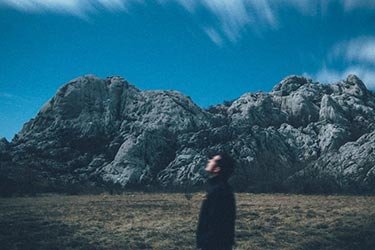To apprentice in the shamanic arts is to take a journey, the destination of which can be spoken of in terms of compassion, wisdom, and relationship. We seek transformation at every level of our being in our connection to the greater cosmos. Whether in the form of raised consciousness, a healed traumatic wound, or a return to right relationship, this road to re-Membering is one shaped primarily by intention. This seemingly simple notion of focused intention is not to be taken for granted and is often – at least for me – quite elusive.
I mention this because of my recent experience standing on the verge of a great new adventure about which I felt utterly overwhelmed by the task of setting clear intention. My wife and I will be departing for our first trip to Peru soon, where we have the immense privilege of taking part in a week of intense ceremonial work deep in the jungle. Many who have apprenticed in the Pachakuti Mesa Tradition go or dream of going to this sacred land to experience firsthand the beauty and wonder found there. I have longed to go for years and have felt the urge deep in my bones. I felt so strongly that I never really asked one simple question of myself: what is the purpose, intention, of this journey? Now that I’m doing it, I struggled to answer the question.
Having worked for many years as both the recipient and provider of psychotherapy, I know all too well how overwhelming our thoughts can sometimes be. They can, if allowed to, trap us in realities that are entirely energetic but that feel hopelessly inescapable. They can also, if tended to with intention, free us to live fully as powerful makers of loving change. Understanding that for most of us there is a constant interplay of opposing perceptions, it serves us well to make a practice of self-examination that brings into our awareness the influences that shape and possibly distort our thinking. This includes our histories, our experiences, and our aspirations. In other words, if we struggle with clarity of thought, we need to ask: “Why am I thinking this way?” Quite often, we need to start with our family of origin. And so, in my recent search for some clarity by which I might set an intention for a great spiritual and ceremonial pilgrimage, it was to my family that I turned first.
My parents are known for their wit and wry humor. My dad, despite his PhD and his proclivity for studied and thoughtful consideration, loves to turn a quick little phrase or deliver a one-liner that results in exaggerated eye-rolls or grins from all in attendance. Similarly, my mom, who spent decades introducing young minds to the greatest works in English literature, also has a knack for dropping little witticisms. One of my all-time favorites is: “A day late and a dollar short, bub,” which I still hear coming from the kitchen when I visit. I suspect they’re reading the political section of the Sunday paper. To this day, I’ll offer that sentiment almost without thinking when perhaps a more refined and delicate comment would be more appropriate. For whatever reason, it was this phrase that kept playing in my head when I tried to set my intention for my trip. I wasn’t afraid of being late for my flight, and the costs had all been paid, so I wasn’t worried about being short on money. I wasn’t even afraid of what might happen during these ceremonies. We were preparing with great effort abiding by the special diet and restricted activities. We understood that ceremonial participation demands both physical and spiritual alignment with the energies and forces that are invoked and evoked. I knew what the first step should be, so my fear stemmed from the reality that I had not clearly identified and set my intention for these ceremonies. I understood that these experiences don’t come often in life and I didn’t want to waste such a rich opportunity. However, gathering my thoughts into some coherent intention felt monumental.
Just as my dear teacher Cynthia Greer stressed with me, I encourage my students to value the importance of setting focused intention for all ceremonial activity. The intention mustn’t be an afterthought or incidental objective. There needs to be clarity and precision when engaging in sacred ritual. The Universe responds to focused intention. That’s the leverage we hold when we engage. With an understanding that the orchestrators of ceremony are called to be the hollow bones through which the healing and transformational forces of the unseen world flow, it is intention that largely forms the energetic structure for the pathway. Even with releasing our attachment to the outcome, the flow is initiated through intention.
Yet, I struggled with this one. Is it easier to formulate focused intention when I’m playing the role of ritualist than when I’m the recipient of those efforts? For me, I think so. Just as with the notion of ayni when we say, “Today for me, tomorrow for you,” I tend to brush over the “today for me” and get straight to the “tomorrow for you” part. I don’t struggle with this out of pure selflessness or unbridled benevolence. I think it has more to do with feeling a bit overwhelmed by examining my own ‘stuff’. Part of me just wanted to shout, “Pick something…it ain’t like you don’t have plenty of shit that needs some work, dude!” But what? Do I pick early childhood trauma? Do I pick ego-driven ambition? Do I pick emotional insecurity and my need for constant validation? What? The list could go on and on, and it overwhelmed me.
So, I did what we are taught to do when we first heed The Call to Heal: I sat at my mesa, I looked deeply into that mirror, and I asked for guidance. With the words echoing in my mind “Help me not be a day late and a dollar short,” I let go. It was a moment of humbled surrender. With all my training, with all my insight and intuitive vista, I could no longer strain at the prospects of setting focused intention for this momentous opportunity in my life.
It was then that the clarity I had so desperately sought came as gently as a leaf falling from a gold and crimson tree. Surrender. Just surrender. Now that is a journey.





